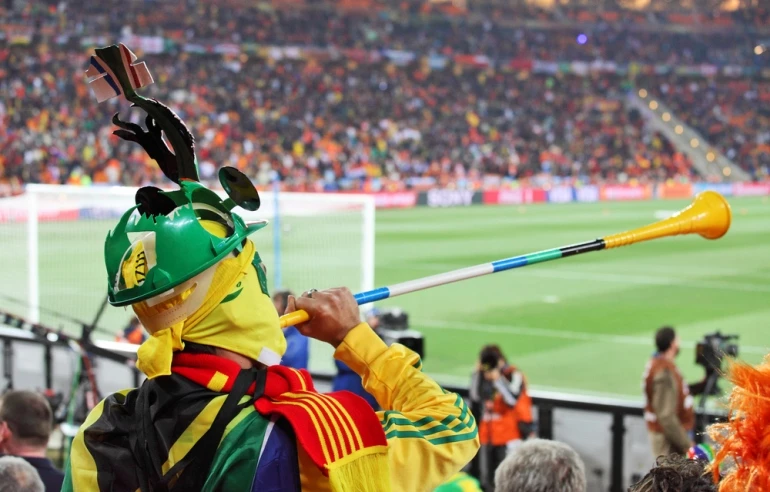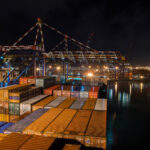For all its conflicts and internal strife, Africa has found in sports a powerful tool to foster unity and social cohesion. Across the continent, nations have harnessed sports to bridge divides, rebuild national pride, and promote peace in the aftermath of historical conflicts and social challenges. By examining the strategies deployed and their impacts, it becomes evident that sports not only entertain but also serve as a transformative force for unity in an increasingly fragmented world.
Rwanda: Reconciliation Through Sports
Rwanda has leveraged sports to heal and unite its citizens following the 1994 genocide against the Tutsi. One notable initiative is the Umurenge Kagame Cup, a national football tournament launched in 2010 that involves 416 teams from the country’s 30 districts. This event culminates at Kigali’s Amahoro National Stadium, fostering a sense of shared pride and community among diverse participants and spectators.
In 2009, a Fundraising Match for Orphans brought together the Rwandan diaspora and local citizens to support genocide orphans. Featuring African football icons like Didier Drogba and Samuel Eto’o, the event raised over Rwf 71 million, reflecting the nation’s collective compassion.
The annual Giants of Africa Festival has also contributed to unity, celebrating basketball and youth development. Led by NBA stars, it provides mentorship and cultural exchange opportunities for young athletes. Similarly, the Tour du Rwanda cycling event showcases Rwanda’s natural beauty while promoting community bonding and international unity.
Organizations like Football for Hope, Peace, and Unity (FHPU), founded by former footballer Eric Murangwa, use football as a tool to connect Rwandan youth from diverse backgrounds, encouraging healing and mutual understanding. High-profile international events such as the Basketball Africa League (BAL) and the FIFA Congress further position Rwanda as a hub for peace and development, underscoring its commitment to fostering unity through sports.
South Africa: Mandela’s Legacy of Unity
In post-apartheid South Africa, Nelson Mandela used sports to bridge deep racial divides. His iconic appearance at the 1995 Rugby World Cup, where he donned the Springbok jersey and presented the trophy to captain Francois Pienaar, remains a powerful symbol of reconciliation.
Hosting the 2010 FIFA World Cup, the first on African soil, reinforced South Africa’s capacity to unify its citizens through sports, generating national pride and solidarity. Events like the Nelson Mandela International Day Marathon honor Mandela’s vision by encouraging participation across diverse backgrounds.
Grassroots programs such as Sport for Peace bring together marginalized communities through soccer and other sports, emphasizing teamwork and mutual respect. However, challenges persist, including unequal access to sports infrastructure and slow racial transformation in elite sports. Despite these obstacles, South Africa continues to use sports to celebrate diversity and work towards inclusivity.
Democratic Republic of the Congo: Sports for Peace
The Democratic Republic of the Congo (DRC) has long used sports as a tool for unity. Historically, events like the 1965 All-African Games fostered solidarity among newly independent African nations.
More recently, initiatives such as MONUSCO’s Peace through Sports program in 2010 and the Peace and Sport training sessions in 2024 have focused on using sports to promote reconciliation. These efforts provide youth with opportunities to engage in structured activities, reducing crime and fostering community ties.
Prominent figures like NBA star Tony Parker have also championed sports development in the DRC, inspiring young athletes and supporting leadership programs. Initiatives like YALI Sports combine sports with life skills training, empowering vulnerable youth and strengthening community cohesion.
Morocco: Uniting the Arab World
Morocco’s performance at the 2022 FIFA World Cup transcended national boundaries, uniting the Arab world. By embracing a pan-Arab identity, the Moroccan team fostered a shared sense of pride across the region. Coach Walid Regragui’s focus on representing both Africa and the Arab world resonated deeply, while public displays of solidarity, such as waving Palestinian flags, strengthened the team’s connection with its supporters.
The inclusion of diaspora players broadened the team’s appeal, creating a sense of belonging among Arab communities worldwide. Beyond the World Cup, Morocco’s investment in sports infrastructure and its bid to host major events like AFCON 2025 and the 2030 FIFA World Cup highlight its commitment to unity through sports.
A Catalyst for Unity
From national tournaments that heal wounds to grassroots initiatives that nurture the youth, Africa demonstrates that sports transcend competition. They serve as a platform for peace, inclusion, and collective progress. As these efforts grow, sports will remain an invaluable force for fostering unity and promoting sustainable development across the continent.
Africa has effectively utilized sports as a tool for unity and social cohesion, healing divisions and rebuilding national pride post-conflict. In Rwanda, sports like the Umurenge Kagame Cup and initiatives such as the Giants of Africa Festival have aided reconciliation following the 1994 genocide by fostering community spirit and providing youth mentorship. Similarly, South Africa has used sports to bridge racial divides, highlighted by Nelson Mandela's efforts. Despite challenges, grassroots programs continue to promote inclusivity.
In the Democratic Republic of the Congo, historical and recent sports initiatives, including MONUSCO's Peace through Sports program, have focused on reconciliation and youth engagement, reducing crime and fostering community ties. Morocco's performance at the 2022 FIFA World Cup united the Arab world and emphasized a pan-Arab identity, illustrating how sports transcend national boundaries to foster regional pride.
Overall, Africa's sports initiatives, from national tournaments to grassroots programs, serve as platforms for peace, inclusion, and progress, proving that sports are more than just competitions. They are catalysts for unity and sustainable development across the continent.






